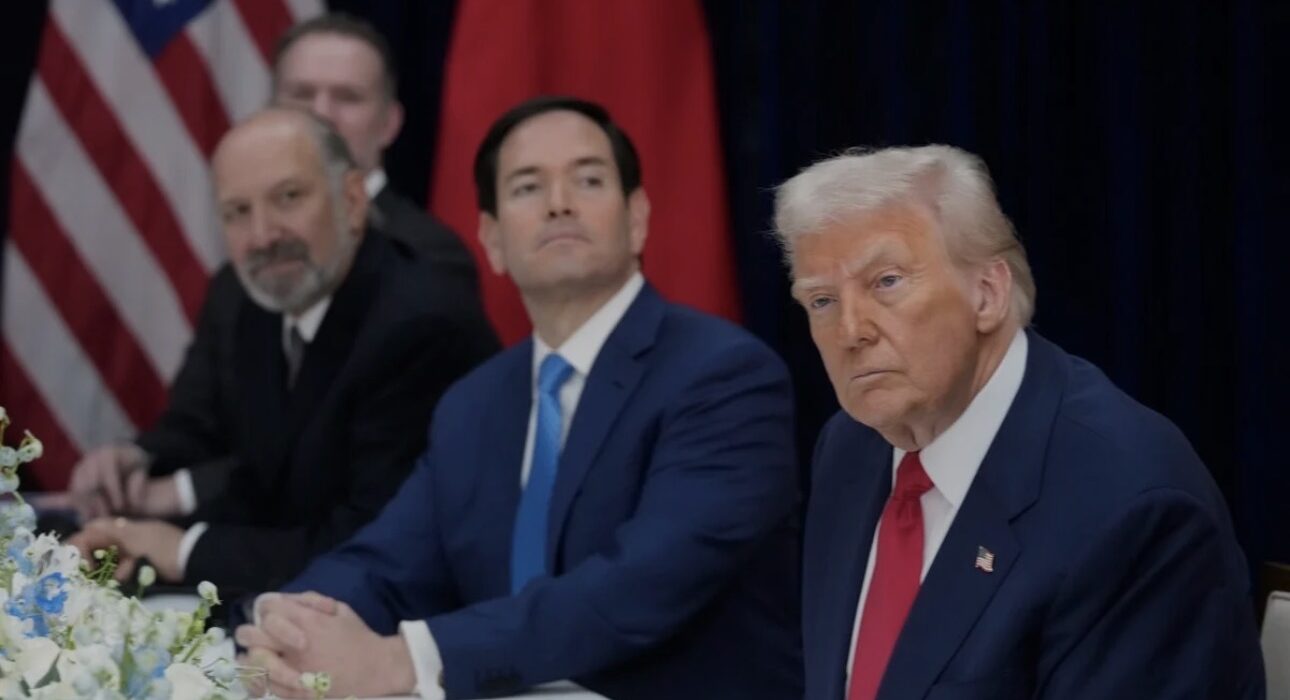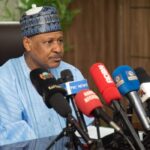Global Concerns, Diplomatic Confusion Trail Trump’s Nuclear Test Order

U.S. President, Donald J. Trump has ignited worldwide alarm after announcing a directive for the United States to resume nuclear weapons testing, a move that has sent shockwaves through diplomatic circles and reignited fears of a new global arms race.
The unexpected order, delivered in a social media post just minutes before Trump’s scheduled summit with Chinese President Xi Jinping in South Korea, stated: “Because of other countries’ testing programs, I have instructed the Department of War to start testing our Nuclear Weapons on an equal basis. That process will begin immediately.”
The statement, though brief, has been interpreted as a major policy shift — one that could end the three-decade moratorium on full-scale nuclear testing that the U.S. has observed since 1992.
While the White House has yet to issue a detailed clarification, experts and defense officials remain uncertain whether Trump was referring to subcritical tests — which do not produce a nuclear explosion — or full detonations, which would break long-standing global norms.
The ambiguity itself has triggered concern. Analysts say the mere suggestion of explosive testing could destabilize decades of arms-control efforts and invite retaliatory action from other nuclear powers.
The Comprehensive Nuclear-Test-Ban Treaty Organization (CTBTO) condemned Trump’s remarks, warning that any explosive test “would be harmful and destabilizing for international peace and security.”
In Moscow, Kremlin spokesman Dmitry Peskov dismissed Trump’s justification, saying Russia’s recent drills “cannot in any way be interpreted as nuclear tests,” while cautioning that a U.S. resumption could compel “a review of our own defense posture.”
China’s Foreign Ministry also expressed “grave concern,” urging Washington to “respect global non-proliferation agreements” and act responsibly in the interest of international stability.
Meanwhile, Iran called the move “reckless and hypocritical,” accusing the U.S. of undermining the very non-proliferation standards it often demands from others.
Within the U.S., lawmakers from both parties expressed confusion and alarm, questioning whether the Pentagon had received formal instructions or merely been caught off guard by the president’s public statement.
If carried out, the directive would represent a dramatic reversal of America’s nuclear posture and could unravel years of disarmament diplomacy. The United States signed the Comprehensive Nuclear-Test-Ban Treaty in 1996 but never ratified it — a point critics say now leaves room for such unilateral action.
Defense analysts warn that the decision could embolden other nuclear states to follow suit. “If the U.S. resumes testing, it could trigger a cascade,” said one arms-control expert. “We may see Russia, China, and even emerging powers reconsider their restraint.”
The announcement comes at a time of rising geopolitical friction, with Washington’s relations with Moscow and Beijing already strained over military exercises, trade disputes, and cyber operations.
Trump’s statement has added uncertainty ahead of his meeting with Xi, where nuclear stability was expected to be a key discussion point.
European allies, including France and Germany, have also expressed dismay, warning that such a decision could “undermine global security architecture built painstakingly since the end of the Cold War.”
As of press time, no evidence of an imminent test has emerged, and U.S. defense officials are reportedly awaiting further clarification from the White House.
Still, the diplomatic damage appears to be done — with the world bracing for potential aftershocks of Trump’s announcement.
If the order translates into action, analysts say it would mark the first U.S. nuclear explosion in over three decades, reversing a long-standing consensus against live testing and ushering in a volatile new phase in global nuclear politics.
The international community now watches closely — uncertain whether the announcement represents strategic posturing or the opening act of a new nuclear era.









